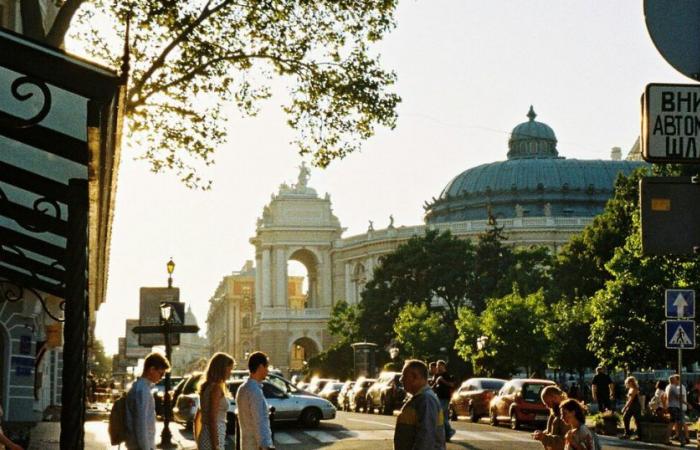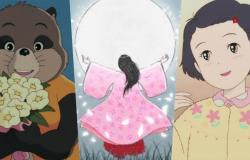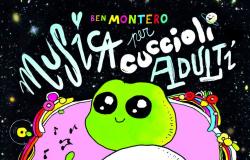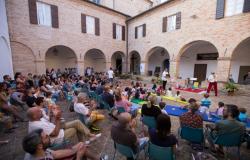Digressions starting from “Chi dice e chi tace” by Chiara Valerio and “Invernale” by Dario Voltolini (best wishes for the Witch). And a story from Kharkiv, where the municipality has repopulated a city pond with goldfish. Under the Russian bombs
“Vittoria died yesterday morning. I know she liked you, and you liked her.” I wanted to write, after Annalena B., about Chiara Valerio’s book, “Chi dice e chi tace” (Sellerio), because I like her and I like the book. I don’t know how you behave with friends whose books you read. Like me, I think: trusting above all that you’ve escaped danger. A bad book is the worst wrong a friend can do you. With Valerio I didn’t start from page 69 – ubi maior – but from the beginning, and I was immediately reassured that you’ve escaped danger. She writes with great confidence in herself and in others, without asking herself the question, so to speak. The duck style, La Capria called it (I do object to the liquidation of the conjunction “che” in subordinate clauses in the subjunctive, triumphant today and felt by some to be refined: “he didn’t accept it was over”, “he didn’t want me to accept” – a conservative tic of mine, nonsense). I expected better and I was right: the investigation that Valerio conducts through his protagonist Lea has as its object a beautiful way of letting love intervene in a person’s life, posthumously, so to speak. Vittoria, the one who died – no matter how or why, not so much anymore – was loved by Lea and Lea was loved by her. There were gestures. Vittoria swims, reads, says the names of plants, puts her hand on your arm, drinks, plays cards, pats your thigh, makes knots, grabs your chin, pulls you to her… The innocent gestures then take on another meaning, without becoming guilty. They are not unpicked roses, it is the discovery of a love. Once revealed, one can no longer think that it happened without the knowledge of one or the other. So much so that one, the one who remained, can tell it.
I wanted to say more or less this, then I left for Ukraine, and now I’m in Odessa, and I think and write about war and the way it overrides people’s loves and exalts them and transforms them into anguish and pain. But today is Sunday, the newspaper won’t come out tomorrow, and Odessa spins its own enveloping literary network. June 23, is the birthday of Anna Akhmatova, who was born here, in 1889, in the suburb of Bol’soj Fontan, and my friend just drove me there. And she told me that a bench was placed in the small garden three times and stolen three times. “How high does the devotion of Akhmatova’s admirers go?” – I asked – “But no! – She laughed – It’s the neighborhood”. This is how I learn. She, “the poet”, was called Gorenko, took the new surname from a Tatar grandmother, and derived from it the music of A which runs between name and surname (in the Scauri of Valerio’s novel there are two girls called Enea, because it ends in TO). She was born on the Black Sea of Odessa and raised on the Black Sea of Crimea, but she wrote:
“And if one day they thought in this country
to erect a monument to me,
I agree to be celebrated
but only on one condition: do not place the statue next to the sea where I was born –
I have severed the last bond with the sea – or in the Tsar’s park…
but here, where I stayed three hundred hours and where they didn’t open the locks for me.”
(The translation is by Michele Colucci. “Here”, is in front of the prison of the long and vain wait).
My friend tells me about Kharkiv, where yesterday the Russian bombs hit the center and killed someone and injured more than fifty. You heard that the city hall has just repopulated a city pond with goldfish – golden fish, they’re called here. She seems touching to her, the missiles and the thoughtfulness of the goldfish. These days there is a proliferation of poetic images, it must be the summer solstice, the full moon. Where you least expect it. In the interview with Polito in the Corriere, Cardinal Camillo Ruini, 93 years old, talks about death, and says that “until the Resurrection, the soul separated from the body is in an unnatural condition, like a penguin at the Equator”. Poetry or advertising, or both. In the “Punto” of the Corriere, on Friday, there was a review-interview with Dario Voltolini by Alessandro Trocino. Voltolini is also in the final of the Premio Strega with his “Invernale” (La Nave di Teseo). Trocino declares it “formidable”, making me think that it is possible, also due to some statements by Voltolini which I cordially agree with. For example: “Let’s say that I have this litmus test: have you seen that Antonio Moresco exists or not? He has now come out with a 500 page book and everyone is pretending nothing happened”. I have seen, moreover, that Moresco exists. The article shows the inheritance, if not the coincidence, between the profession of butcher that belonged to Voltolini’s father and the profession of writer that is his. Sharp blades. I don’t eat meat – without much merit, I eat fish (Kafka once visited an aquarium and said to the fish: “Now I can look at you, because I won’t eat you anymore.”) I don’t even chop human flesh, but I owe a great debt to surgeons and to those who write surgically. This morning, at the Moldavanka market, the one of “Babel” and “Tales,” there was a wretch with a modest repertoire of domestic butchering, and he was fighting a losing battle with flies and the sun, with no customers in sight: I wanted to buy a leg of pork, Kafka would have done it. Kafka also said that “a book must be an axe to break the sea of ice inside us.” The phrase is famous, although it is difficult to imagine him with an axe in his hand. A precedent was Jeremiah, 23,29: “My word is like a hammer that splits the rock.” And a domestic precedent: Kafka’s mother, now old, wrote two pages about the family, and remembered a maternal grandfather who neglected the business to take care of the Talmud. “In summer and winter he went every day to bathe in the Elbe. In the winter, when it was freezing, he carried a hoe with him to break the ice and dive in.” Geremia and his great-grandfather, the frozen sea inside and the frozen river outside. Another famous phrase by Kafka. “There is much hope but none for us,” recalls Vittoria, the protagonist of Valerio, and “she said that it is the funniest phrase in the world.” (It is not in the “Letters to Milena,” however, but in a memory by Max Brod: “’Our world – he said – is only a bad mood of God, a bad day.’ ‘Outside this manifestation, this world that we know, there would therefore be hope.’ He smiled: ‘Oh sure, much hope, infinite hope, but not for us.’”)
Il Corriere promotes Voltolini – best wishes! – and I can praise Valerio (I haven’t read others, I apologize). And without being intimidated by the disproportion between Odessa (or Kharkiv, already the capital, already home to the flower of Ukrainian poetry and literature, gathered together to be better decapitated in the early 1930s) and Scauri, which is Valerio’s hometown. One reviewer of which aptly recalls the recommendation attributed to Tolstoy: “Do you want to be universal? Talk about your village.”
They all stop first, in Sperlonga or Gaeta. “Scauri exists,” Valerio proclaims in his appendix note. Another time he said: “Everyone has heard of Scauri or has heard someone talk about it”. Me too. In 1959 I was the most reckless fan of the basketball team of the Roman high school Virgilio, promotion tournament, and on December 13th we went away to Scauri. “Match made uncertain by the pitch made slimy and difficult”, said the local news kept by my friend Tonino C.: and above all by the animosity of the fans, under which we were about to physically succumb, if one last shot, providence, had not secured victory for Scauri, 33 to 32. I think we had brought our colonial arrogance to that extreme province, like the great Roman lawyer thirty years later in Valerio’s novel (but we waited for the barbarians and on our return, at home, we won 53 at 29).
Lea conducts her investigation in search of lost time, but it is his way of staying with her. She has a little weakness, when she says she passed Vittoria by for twenty years and saw almost nothing of her: “I feel like I missed an opportunity.” She didn’t miss it, she had it, she has it. “But I didn’t like Vittoria in that way,” Lea protests, and you understand what she means. You also understand that, “in that way,” it doesn’t make sense.






